Organizers:
Saint Adalbert Foundation for the Research of Central and Eastern Europe, Esztergom
East and Central European Research Centre, College of Nyíregyháza
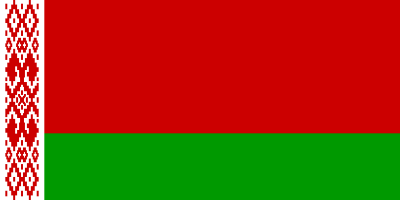
Venue:
Esztergom, Szent István tér 10.
29. 09. 2011.
10.00 − 10.20
Opening
Zoltán András, Székely János segédpüspök
10.20 − 11.40.
Chair: Ihar Klimau (Minsk, Belarus)
- Szjarhej Dubavec (Vilnius, Lithuania): A fehérorosz kultúra orosz megszállás alatt (The Belarusian Culture Under the Russian Occupation)
- Zoltán András (Budapest, Hungary): A régi magyar-fehérorosz nyelvi és mûvelôdési kapcsolatok (The Hungarian-Belarusian Cultural and Language Relations in the Past)
- Michael Moser (Wien/Piliscsaba, Austria/Hungary): A taraskevica tanulásáról (Learning about Tarashkevitsa)
- Valancina Lukevics, Uladzimier Lukevics (Brest, Belarus): A fehérorosz kultúra a globalizáció korában (Belarusian Culture in Age of Globalization)
11.40 – 12.20
Discussion and coffee break
12.20 − 13.40.
Chair: Marija Martiszevics (Minsk, Belarus)
- Ihar Babkou (Minsk, Belarus): Fehéroroszország. Irodalom a határvidéken (Belarus. Literature on the Borderland)
- Artur Klinau (Minsk, Belarus): Az Utópia városa. Minszk mint Napváros (The City of Utopia. Minsk as the City of the Sun)
- Pálfalvi Lajos (Piliscsaba, Hungary): Menekülés Utópiából a Commonwealth-be.
Artur Klinau esszéregénye (Escape from Utopia to the Commonwealth. Arthur Klinau’s essay-novel) - Tempfli Péter (Budapest, Hungary): A tér Sokrat Janowicz, Ihar Babkou és Artur Klinau esszéiben (Space in the Essays of Sokrat Janowicz, Ihar Babkou and Artur Klinau)
13.40 − 15.30
Discussion and lunch
15.30 − 16.50
Chair: Szjarhej Dubavec (Vilnius, Lithuania)
- Keskeny Ernő (Budapest, Hungary): Fehéroroszország politikai helyzete, magyar-fehérorosz kapcsolatok (The Political Situation of Belarus, Hungarian-Belarusian Relations)
- Bettina Bruns (Leipzig, Germany): Az Európai Unió külső elkötelezettsége. A fejlődés, a problémák és Fehéroroszország esélyei (Exterritorial Engagement of the European Union. Development, Problems and Chances for Belarus)
- Marija Martiszevics (Minsk, Belarus): Köztes állapot, avagy Az irodalom két lelke
(The State Between, or The Two Souls of Literature) - Pavel Kasztukevics (Minsk, Belarus): A minszki lohvinaU könyvesbolt mint a fehérorosz irodalom független fóruma (The Minsk-Situated lohvinaU Bookshop as an Independent Platform for Belarusian Literature)
- Larisza Sztankevics (Brest/Budapest, Belarus/Hungary): A magyarországi albarutenisztika (Belarusian Studies in Hungary)
16.50 − 17.20
Discussion and coffe break
17.30
Reception
(Esztergom – Prímás pince)
30. 09. 2011.
10.00 − 11.20
Chair: Oleg Łatyszonek (Białystok, Poland)
- Marina Mozsejko (Minsk, Belarus): Fehéroroszország környezeti kultúrája. Kelet és Nyugat között (The Environmental Culture of Belarus. Between East and West)
- Aljakszandar Laptenok (Minsk, Belarus): Az erkölcsi kultúra fejlődése Fehéroroszországban a szovjet korszak után (Development of Moral Culture in Belarus after the Soviet Period)
- Ihar Klimau (Minsk, Belarus): A fehéroroszosítás a két világháború között és a fehérorosz nacionalizmus (The Belarusianization Between the Two World Wars and the Belarusian Nationalism)
- Marina Antanyuk (Minsk, Belarus): A fehérorosz jogi terminológia mint az államalapítás és az állami fejlődés terméke (Belarusian Legal Terminology As the Product of the Foundation and the Development of the State)
11.20 − 12. 00
Discussion and coffee break
12. 00 − 13.20
Chair: Lajos Pálfalvi
- Ryszard Radzik (Lublin, Poland): Lengyelország és Oroszország között. A fehéroroszok identitásai az elmúlt két évszázadban (Between Poland and Russia. The Identities of the Belarusians in the Last Two Centuries)
- Oleg Łatyszonek (Białystok, Poland): Milyen civilizációhoz tartozik Fehéroroszország?
(To Which Civilization Belongs Belarus?) - Lagzi Gábor (Budapest/Debrecen, Hungary): Lengyel–fehérorosz kapcsolatok 1991 után – lehetőségek és korlátok (Polish–Belarusian Relations After 1991 – Potentials and Boundaries)
- Illés Pál Attila (Piliscsaba, Hungary): „Lengyel vallás” Fehéroroszországban („Polish Religion” in Belarus)
This conference is supported by the Schuman Foundation

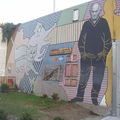

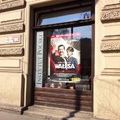
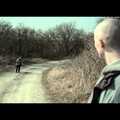
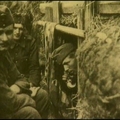
Hozzászólások